'Breaking point': Swing voters weigh Trump rhetoric against economy
Michigan mayor says he can't support Trump again in 2020: "Enough is enough."
MACOMB COUNTY, Mich. -- As national debate over white nationalism, racism and President Donald Trump's rhetoric reaches a boil, the political implications for the 2020 election are coming into focus in this influential corner of middle America.
In presidential races, as Macomb County goes, so goes Michigan. And in 2020, Macomb's quintessential swing voters -- mostly white, working class -- are very much up for grabs.
In dozens of interviews with ABC News Live, many voters expressed distaste for the president's words and behavior, but stopped short of concluding that they must rule out voting for him.
Macomb's voters picked Barack Obama in 2008 and 2012, but the county flipped for Trump by large margins in 2016. That swing helped Trump carry the state by just over 10,000 votes and cement a victory over Democrat Hillary Clinton.
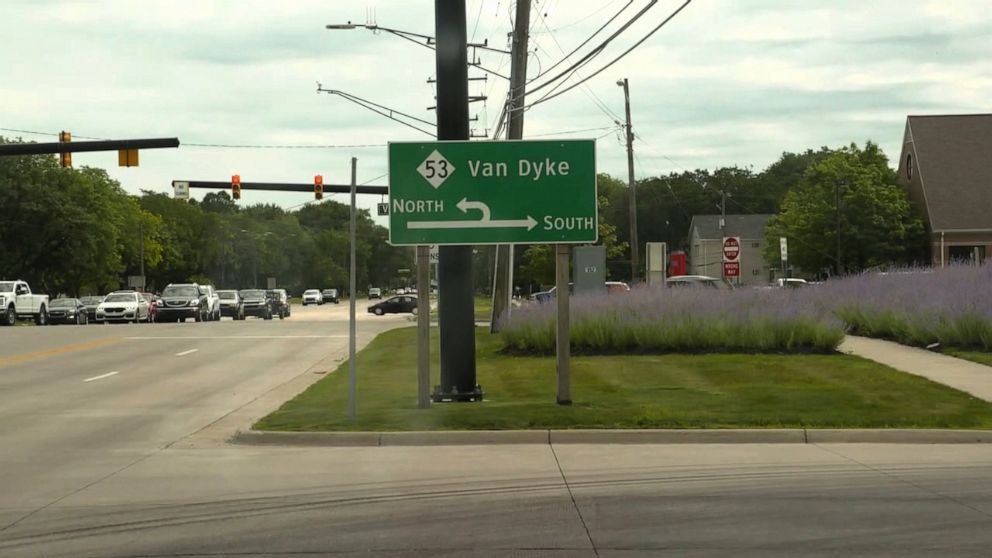
"There's a lot of people here -- tens of thousands of people who are still deciding, 'Can I pull the lever for Trump again? Or, am I going to go with somebody on the Democratic side?' And if the Democrats come and say, 'If you vote for Trump, you are a racist,' that's not going to sit well with those voters," said Mayor Michael Taylor of Sterling Heights, a city of 130,000 in the heart of Macomb County, about 20 miles north of Detroit.
"I don't personally think that his support is based on race or based on this belief that brown and black people that are immigrants shouldn't be welcome here," Taylor added. "I think it's really more based on, Look, I want an economy that works for me and this is a guy that, even though he's a billionaire from New York City, he gets it, and he talks to me."
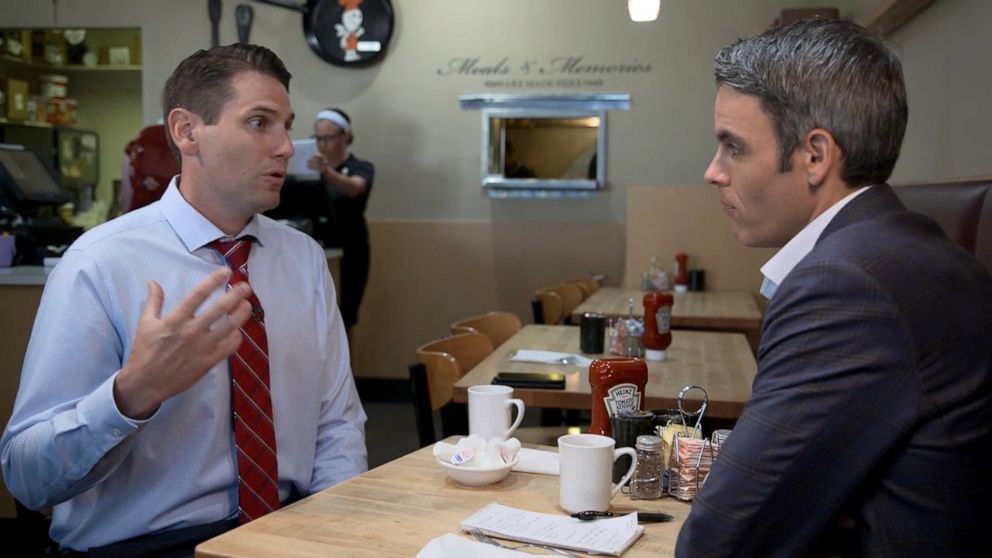
But support for Trump in this bastion of independent politics is not ironclad.
Taylor, a 36-year-old Republican lawyer who leads the state's fourth largest city, backed Trump in 2016 but said he's now had a change of heart.
"It's the constant lying. It's the belittling his opponents and his detractors. It's the childish nicknames that he gives people," said Taylor, a father of three. "I can't tell you when the breaking point came, but it was at some point I was just like, enough is enough for me."
How many of Macomb's 630,000 registered voters follow Taylor's lead may well determine whether Trump holds this county, the state -- and possibly the presidency.
In the last 10 presidential elections, going back to 1980, Macomb County has picked the winner eight times.
Last month, two-term Republican Congressman Paul Mitchell, who represents a significant part of Macomb County, announced that he would not run for reelection, alluding to the president and the polarizing rhetoric that has consumed Washington.
"It seems to me that rhetoric overwhelms policy, and politics consumes much of the oxygen in this city," he said.
Mitchell was one of the first GOP lawmakers to criticize Trump for his racist tweets targeting four Democratic congresswomen of color.
Several Macomb residents who spoke with ABC News Live conceded they, too, are bothered by Trump's behavior, but few described it as reason to follow Taylor's lead, citing little direct impact on their day-to-day lives.
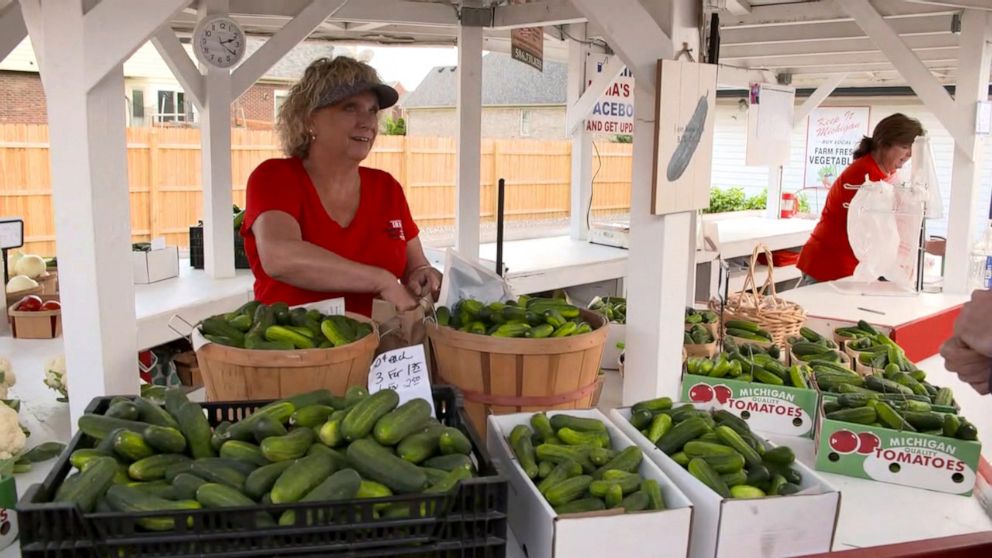
"I think we need some work as a country," said Diane McCauley, whose family has sold locally grown produce and wreaths at Irma's Farm Stand since 1958. "But, I have mixed emotions. Business is good. Life is good. Long as people are healthy and happy and working."
Unemployment in Macomb County, 4.2% in May, has tracked with national trends at near-50-year lows. Median household income in 2017 was just over $58,000, ranking the county among the state's highest.
"Since Trump's been in office, a lot of the current people are happy and still have jobs, but then there's a lot of plants that don't," said Jack Burke of Clinton Township. "I should just say, Trump's going to win."
Financial turbulence in the auto industry -- the lifeblood of the region -- continues to keep the local economy on edge. One of the five U.S. facilities that automaker General Motors will close this year is in Macomb County. The move eliminates 200 jobs, with 60 workers said to be transferred elsewhere, 25 choosing to retire and the others left without work, the company said.
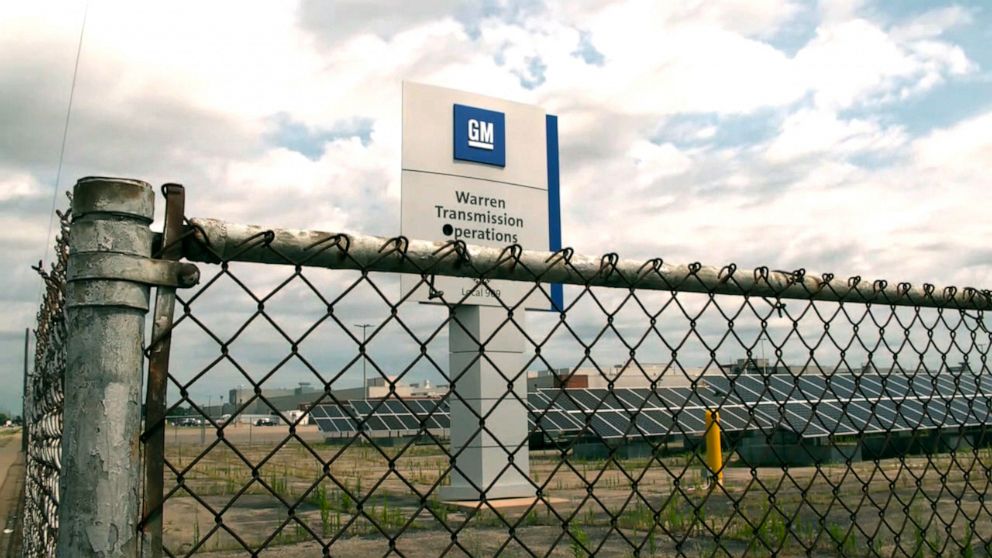
During the 2016 campaign, Trump promised to lead a sweeping resurgence of the American auto industry, which hasn't materialized.
"Democrat or Republican, I just want someone to hear our voice," said General Motors UAW worker Regina Duley said last month as GM's Warren Transmission plan prepared to close. "I know they sell us all a dream. I just want someone to listen."
The stakes are not lost on Trump, who won handily here in 2016, or the Democratic candidates running to unseat him. All have their sights set on Michigan and Macomb, several campaign aides from both parties have told ABC News.
"We've got hardworking people that sometimes vote for Republicans, sometimes vote for Democrats. We're independent-minded," Taylor said.
"A Democrat can win Macomb County and Sterling Heights. They've done it before. They can certainly do it again, but it's going to have to be somebody with a big personality -- somebody that connects to the residents that live here, somebody that talks directly to them and understands what's going on."
In the 2018 midterms, the county flipped back to blue. Macomb voters helped send Democrat Gretchen Whitmer to the statehouse to replace Republican Gov. Rick Snyder, and reelect Democratic Senator Debbie Stabenow.
On a recent weekday visit to Macomb County, a diner was packed with retirees swapping stories about their auto industry careers over coffee. In the local splash park, grandparents watched their kids dizzy themselves on playground slides while talking about preparations for back-to-school. At a farm stand opening for the season, talk was of the crisp, green apples -- not politics, Trump or the Democratic debates.
Many Macomb residents who spoke with ABC News suggested they're simply not paying close attention to the presidential race right now and aren't eagerly seeking a presidential alternative -- but won't rule one out.
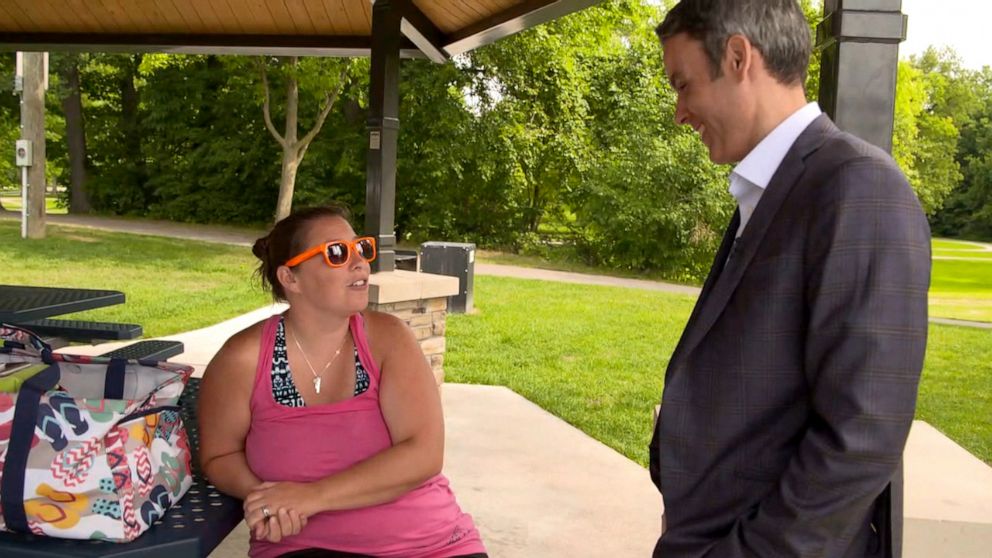
"It's a little early and there are so many candidates," said Lindsey Dombowski, a 24-year-old school teacher who grew up in Macomb.
"Look, I hardly get my kids names right half the time," she joked, sharing her unfamiliarity with the vast Democratic field.
At the farm stand, McCauley said, "I've been busy working; just haven't paid attention to it."
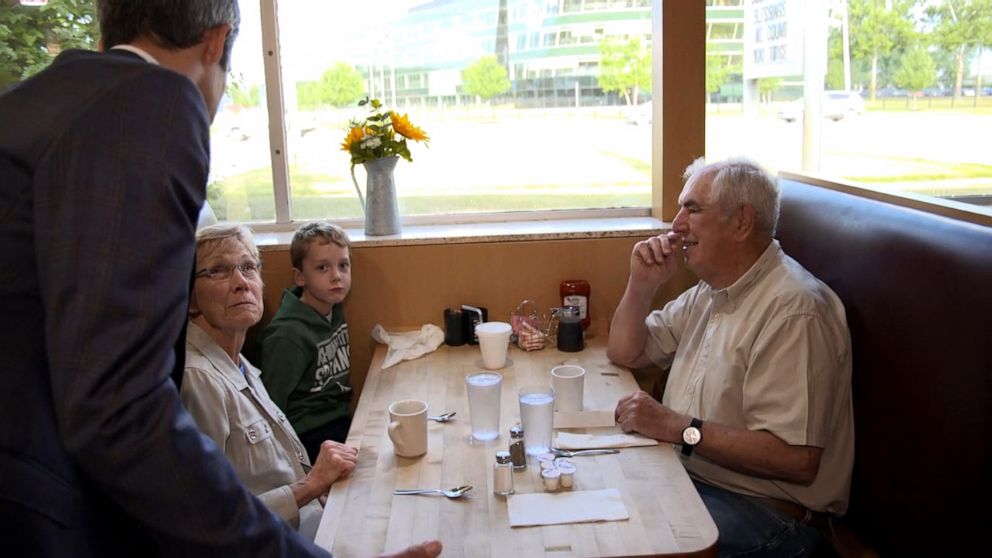
And at The Pantry, a popular breakfast spot in Sterling Heights, Chuck and Lynn Veis said their marriage reflects the political dynamics of the county: He leans toward Trump, she leans toward a Democratic replacement, but who's in the White House is not a top concern.
"Sometimes the smallest things become national news, and we lose sight of what the big problems are," said Chuck Veis, a retired high school teacher. "We're dealing with a president that has taken on some of these big problems, but his presentation sometimes is questionable. But there are a lot of things out there of greater concern."
The couple spoke of challenges with medical coverage for their family, affording prescription drug costs and the high cost of auto insurance in the state.
"It's really stressful," Lynn Veis said when asked her feelings about the early presidential campaign. "I'm waiting for them to narrow it down."
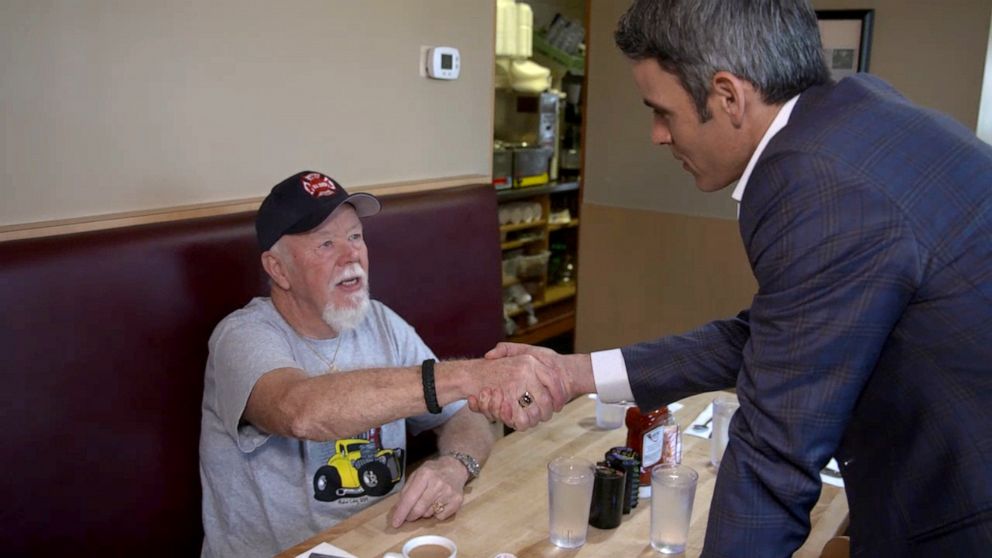
Satisfaction with daily life, and choosing to stay out of the day-to-day political fray, is a common refrain in Macomb. The question now: Can one of the nearly two dozen Democrats running for the party's nomination break through?
"It's been close to 50-50," says Ron Kibzy, a retired firefighter who's lived in Macomb County for 56 years, of the area's politics. "It used to be heavy Democrats for a long time, but then it switched after the last election. And now, they may switch back. Who knows?"
ABC News' Andy Fies contributed reporting.




